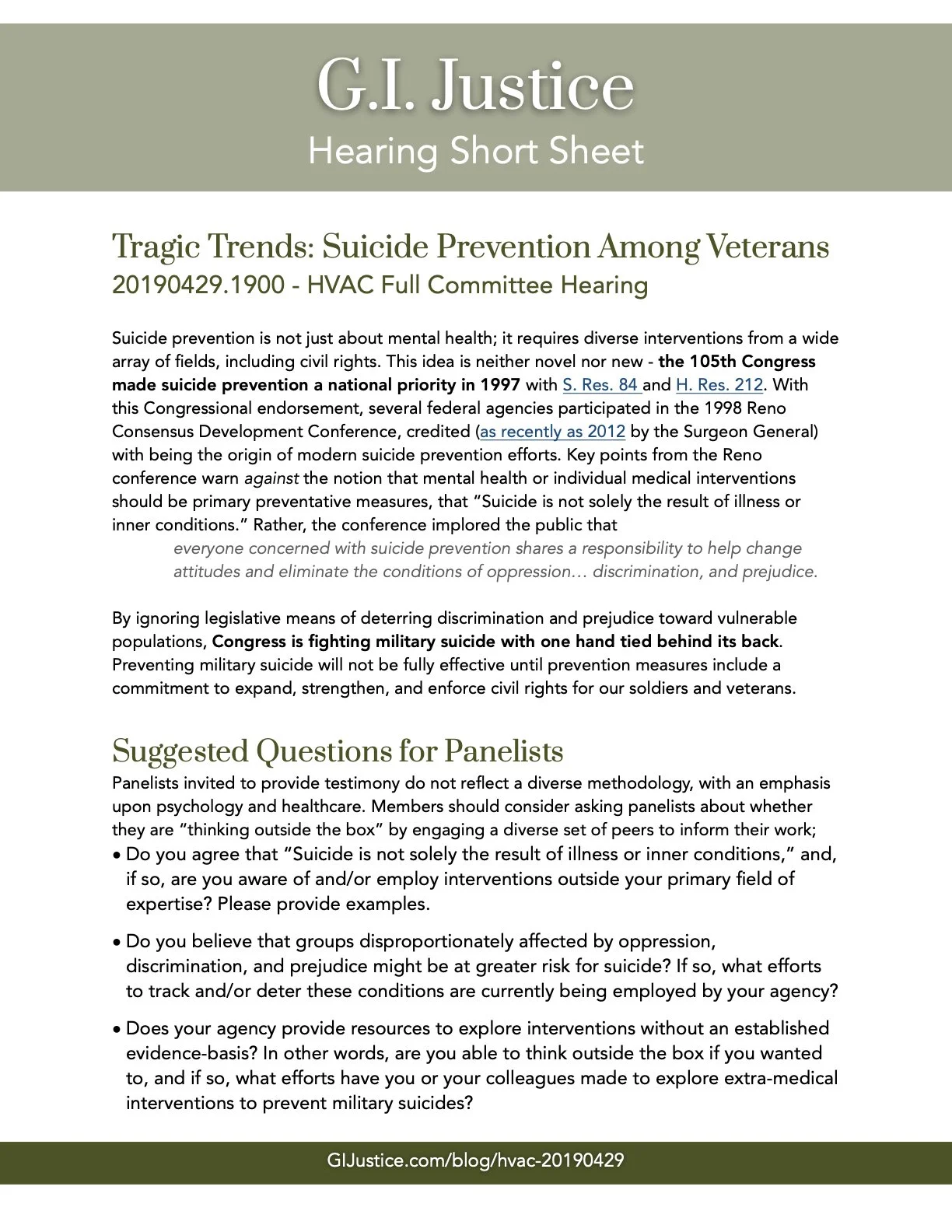Tragic Trends: Suicide Prevention Among Veterans
HVAC Full Committee Hearing (April 29, 2019)
Suicide prevention is not just about mental health; it requires diverse interventions from a wide array of fields, including civil rights. This idea is neither novel nor new - the 105th Congress made suicide prevention a national priority in 1997 with S. Res. 84 and H. Res. 212. With this Congressional endorsement, several federal agencies participated in the 1998 Reno Consensus Development Conference, credited (as recently as 2012 by the Surgeon General) with being the origin of modern suicide prevention efforts. Key points from the Reno conference warn against the notion that mental health or individual medical interventions should be primary preventative measures, that “Suicide is not solely the result of illness or inner conditions.” Rather, the conference implored the public that
everyone concerned with suicide prevention shares a responsibility to help change attitudes and eliminate the conditions of oppression… discrimination, and prejudice.
By ignoring legislative means of deterring discrimination and prejudice toward vulnerable populations, Congress is fighting military suicide with one hand tied behind its back. Preventing military suicide will not be fully effective until prevention measures include a commitment to expand, strengthen, and enforce civil rights for our soldiers and veterans.
Suggested Questions for Panelists
Panelists invited to provide testimony do not reflect a diverse methodology, with an emphasis upon psychology and healthcare. Members should consider asking panelists about whether they are “thinking outside the box” by engaging a diverse set of peers to inform their work;
Do you agree that “Suicide is not solely the result of illness or inner conditions,” and, if so, are you aware of and/or employ interventions outside your primary field of expertise? Please provide examples.
Do you believe that groups disproportionately affected by oppression, discrimination, and prejudice might be at greater risk for suicide? If so, what efforts to track and/or deter these conditions are currently being employed by your agency?
Does your agency provide resources to explore interventions without an established evidence-basis? In other words, are you able to think outside the box if you wanted to, and if so, what efforts have you or your colleagues made to explore extra-medical interventions to prevent military suicides?

